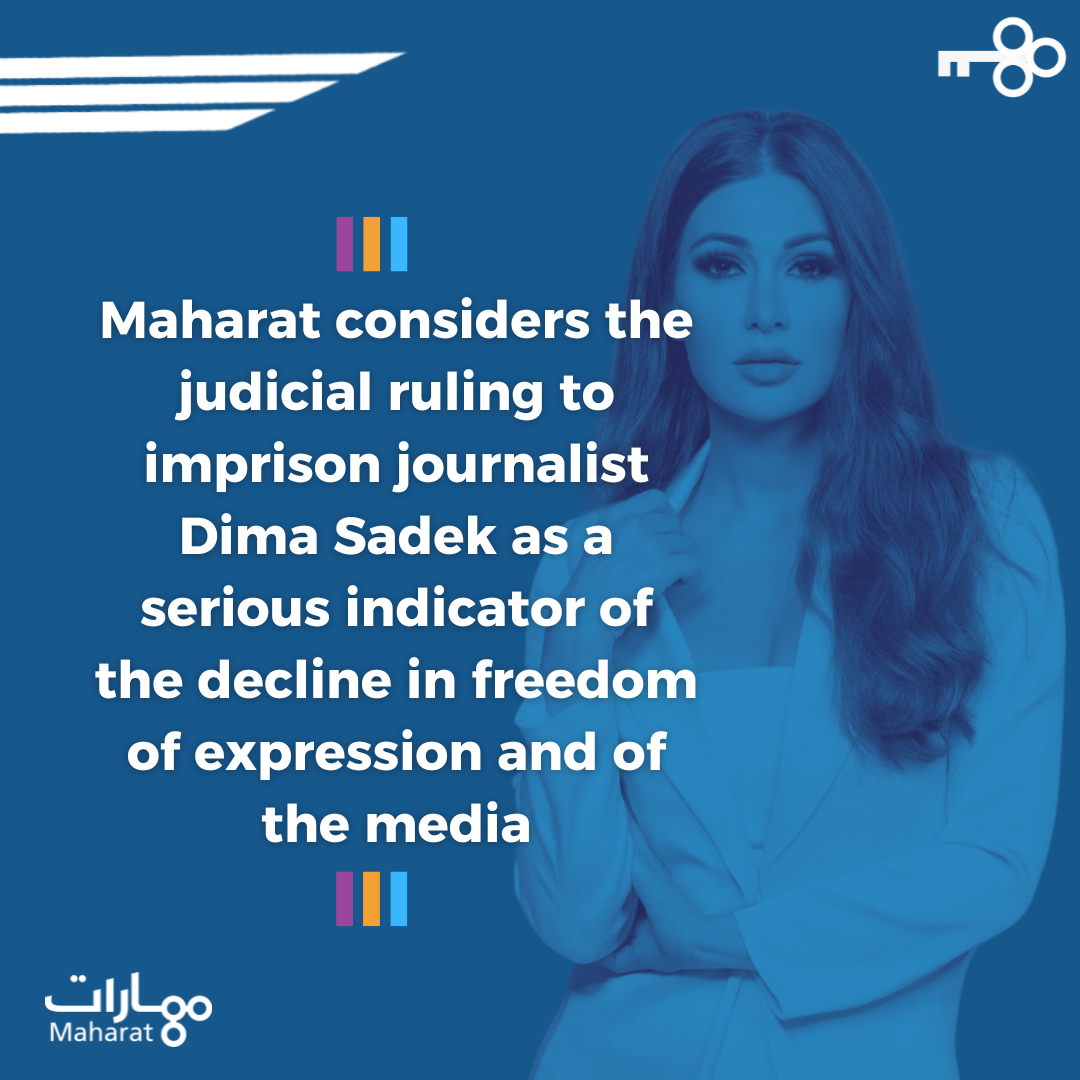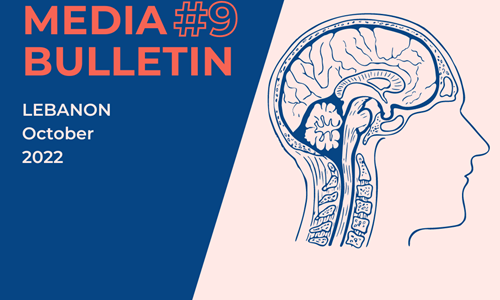
Maharat considers the judicial ruling to imprison journalist Dima Sadek as a serious indicator of the decline in freedom of expression and of the media in Lebanon
On July 10, 2023, Judge Rosine Hojeili, the single criminal judge in Beirut, issued a criminal verdict in the lawsuit filed by the Free Patriotic Movement against journalist Dima Sadek. The charges against her included spreading false news, inciting sectarian and racist tensions, and provoking conflicts between the sects. She was also charged with libel, defamation, and insult, which are crimes specified in Lebanese penal law.
Dima Sadek had previously faced criminal prosecution and investigation by the Central Criminal Investigations Office under the supervision of the Prosecutor General, based on a criminal complaint filed by the Free Patriotic Movement against her in February 2020. This complaint came in response to her sharing a widely-circulated video of sectarian nature featuring a young man from the Tripoli region being beaten by individuals claiming they belong to the Free Patriotic Movement in the Keserwan region. She commented on the incident using the following phrase: "Another attack by the party, hitting him on the head and throwing him into the sewers, telling him, 'Aoun is the crown on your head and Tripoli's head.'"
The mentioned judicial ruling convicted Sadek of the crimes of defamation and libel, sentencing her to six months' imprisonment (Articles 582 and 584, combined with Article 385 of the penal code). She was also convicted of the crime of inciting sectarian and religious tensions (Article 317 of the penal code) and sentenced to one year of imprisonment. The court combined the two penalties, enforcing the more severe punishment. Additionally, Sadek was fined and ordered to pay personal compensations. Moreover, she was prohibited from exercising certain civil rights related to candidacy, elections, and holding administrative positions in unions.
Maharat considers the prison sentence against journalist Dima Sadek as a serious indicator of the decline in freedom of expression and of the media in Lebanon. It sets a judicial precedent that does not align with the international standards that Lebanon is committed to, as stated in the preamble of its constitution. The imprisonment sentence is deemed disproportionate, even if the journalist's actions involve insulting a public figure or spreading false information.
Maharat condemns resorting to criminal prosecution and imposing imprisonment sentences on journalists, along with the strict enforcement of penal code provisions and the broad interpretation of criminal laws that restrict freedom of opinion and expression in matters of public affairs.
Maharat calls for the necessity to stop criminalizing journalists and citizens for expressing their opinions and to expedite the process of reforming media laws in Lebanon to enhance guarantees of press freedom and expression in accordance with international standards.





